Waterloo residents who caused 'good trouble' honored at John Lewis event
Willie Mae Wright, Anna Mae Weems, youth leaders honored
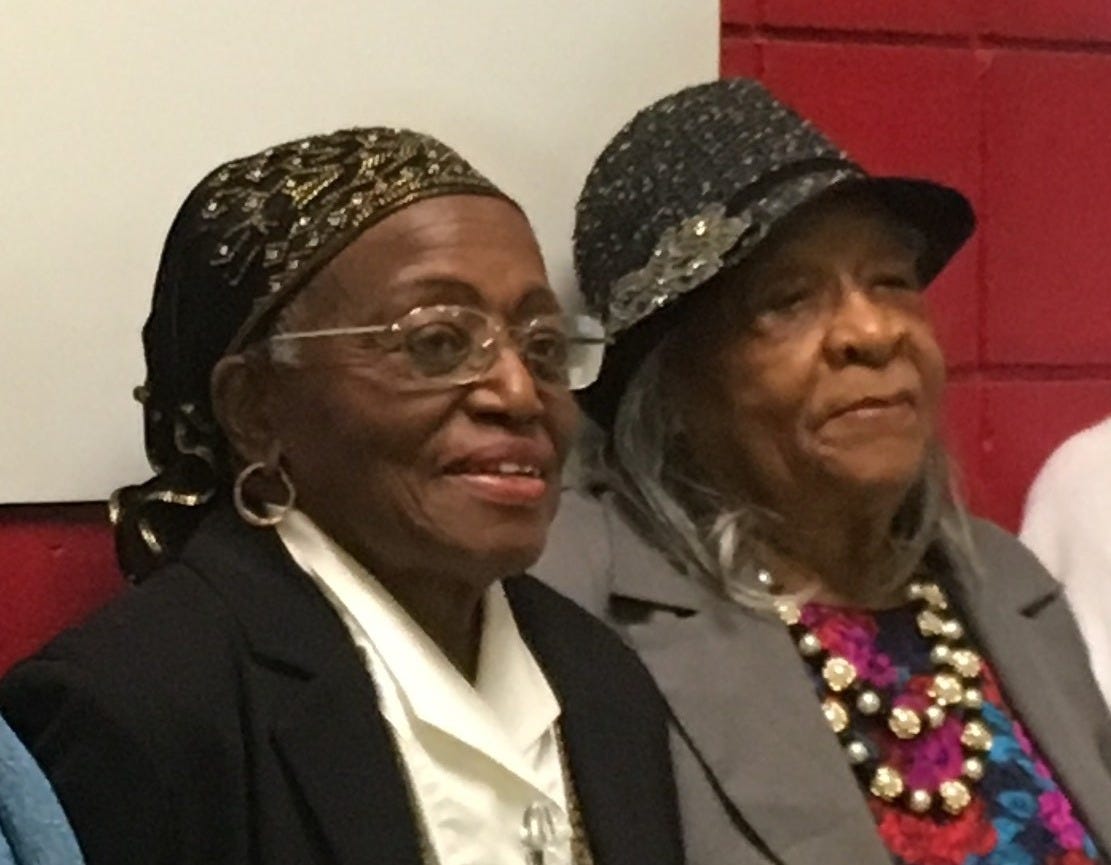
WATERLOO — Past, present and future civil rights leaders were honored at an event this week marking the passing of legendary Congressman John Lewis of Georgia.
The event “Good Trouble in the Cedar Valley: Honoring the Legacy of John Lewis and Waterloo’s Civil Rights Icons,” was held at the Waterloo Center for the Arts Thursday (July 17) on the fifth anniversary of the passing of Lewis, who coined the phrase “Good Trouble” regarding civil disobedience in the cause of human rights.
Two local civil rights leaders were honored: former longtime Waterloo City Council member Willie Mae Wright and the late Anna Mae Weems, who was active with the union representing Rath Packing Co. employees and who brought Rev. Martin Luther King Jr. to Waterloo to speak in November 1959.
They were joined in recognition by Waterloo high school students Elijah Smith from Waterloo East High and LaTreyal Oliver from Waterloo West High, recipients of the 2025 John Lewis Youth Leadership Award. They received their awards in June from Iowa Secretary of State Paul Pate at the Iowa Capitol in Des Moines. They were recognized for their efforts in ensuring access to transportation for after-school activities for their fellow students. A press release from Secretary Pate’s office on the awards may be viewed here.
The young people can find examples of local leadership similar to that of Rep. Lewis in the lives of both Wright and Weems.
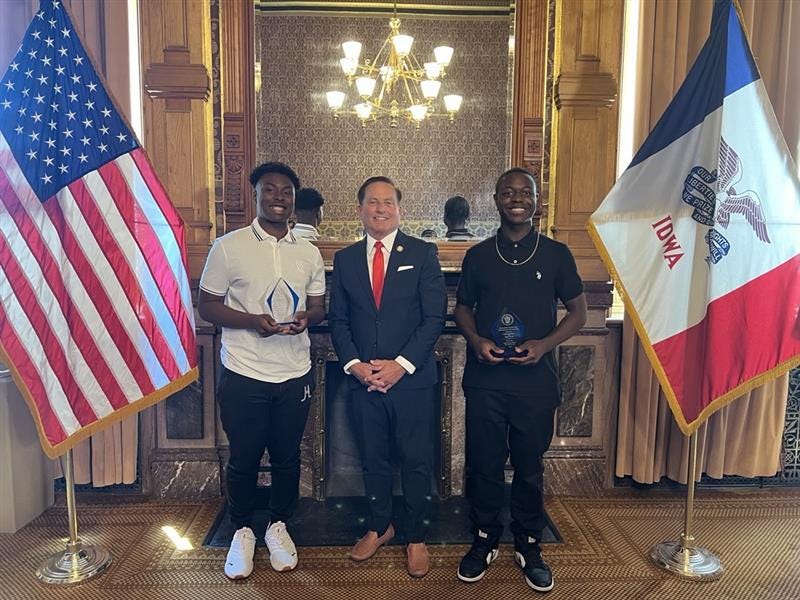
Willie Mae Wright
Willie Mae Wright, 93, was born in Mississippi and came to Waterloo in 1954 — where she voted for the first time. Her paternal grandmother was enslaved, sold at age five and separated from her mother.
Wright served 10 years on the Waterloo City Council in the 1980s and early ‘90s under three different mayors — Del Bowers, Bernie McKinley and Al Manning.
She represented Waterloo’s Fourth Ward, which includes a portion of the city’s east side where a large portion of Waterloo’s Black citizens have historically lived. She was only the second Black person to serve on the City Council. When she was re-elected in 1987 as a member of McKinley’s council ticket with at-large council member Sammie Dell, it marked the first time more than one Black person had served on the council at the same time.
She and Dell nudged the city and their council colleagues into making Rev. King’s birthday a city holiday in the late 1980s when the two of them did not attend a council meeting scheduled on the holiday.
Wright was part of a council which navigated the city through one of the worst economic times in its history, following mass layoffs at John Deere’s Waterloo operations and the closure and liquidation of the Rath Packing Co., the city’s two largest private employers.
The cities of Waterloo and Cedar Falls embarked on a major $300-millin-plus reconstruction of the metro highway system and related thoroughfares to open up the city and metro area for more business and residential development. The council also brought an IBP inc., now Tyson Fresh Meats, pork processing plant to town to fill the void left by the death of Rath.
Wright remained active in the Black Hawk-Bremer League of Women Voters for many years after leaving elected office, as well as at Payne Memorial AME Church.
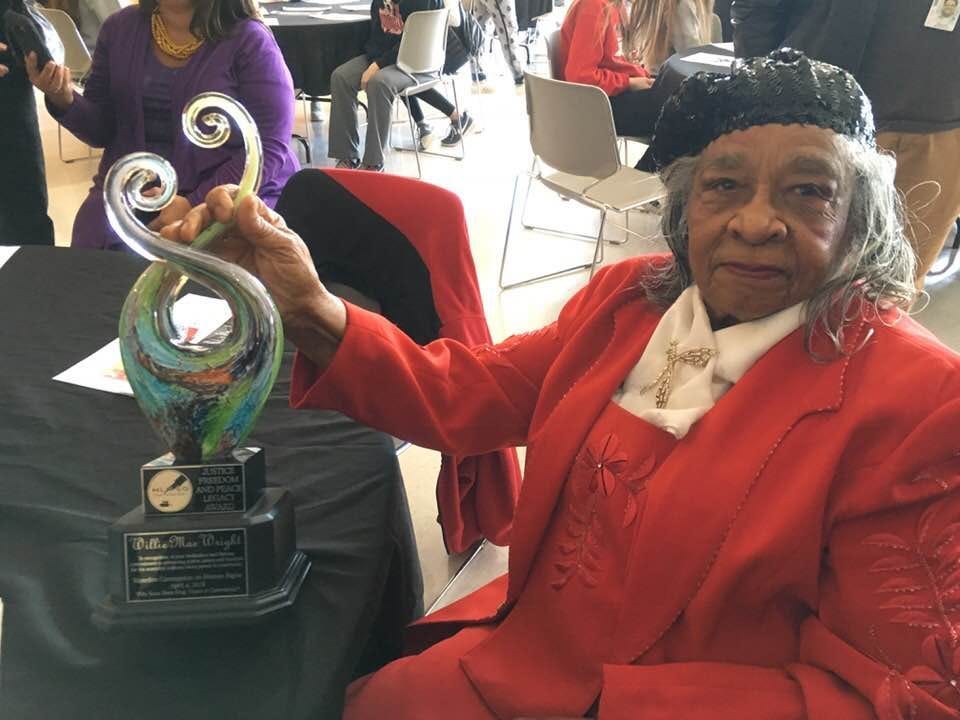
Anna Mae Weems
Anna Mae Weems, a graduate of the Waterloo East High School Class of 1943, became active in United Packinghouse Workers of America Local 46 at Rath. It was a racially integrated workforce and a racially integrated union, offering a springboard for empowerment within Waterloo’s Black community.
It was through her UPWA involvement that Weems was invited to a Washington, D.C., prayer breakfast of labor representatives in the late 1950s, convened by then-Vice President Richard Nixon.
At that breakfast Weems heard a dynamic young minister deliver the invocation. It was King.
She invited him to come to Waterloo. He had begun to make a name for himself as a minister in Montgomery, Ala., where he was a key figure in the city bus boycott there. He spoke at Waterloo West High School and at Iowa State Teachers College in Cedar Falls, now the University of Northern Iowa.
Weems continued her activism through the union and her association with King. She also marched in the first day of the Memphis, Tenn, .workers strike during which King was assassinated on April 4, 1968.
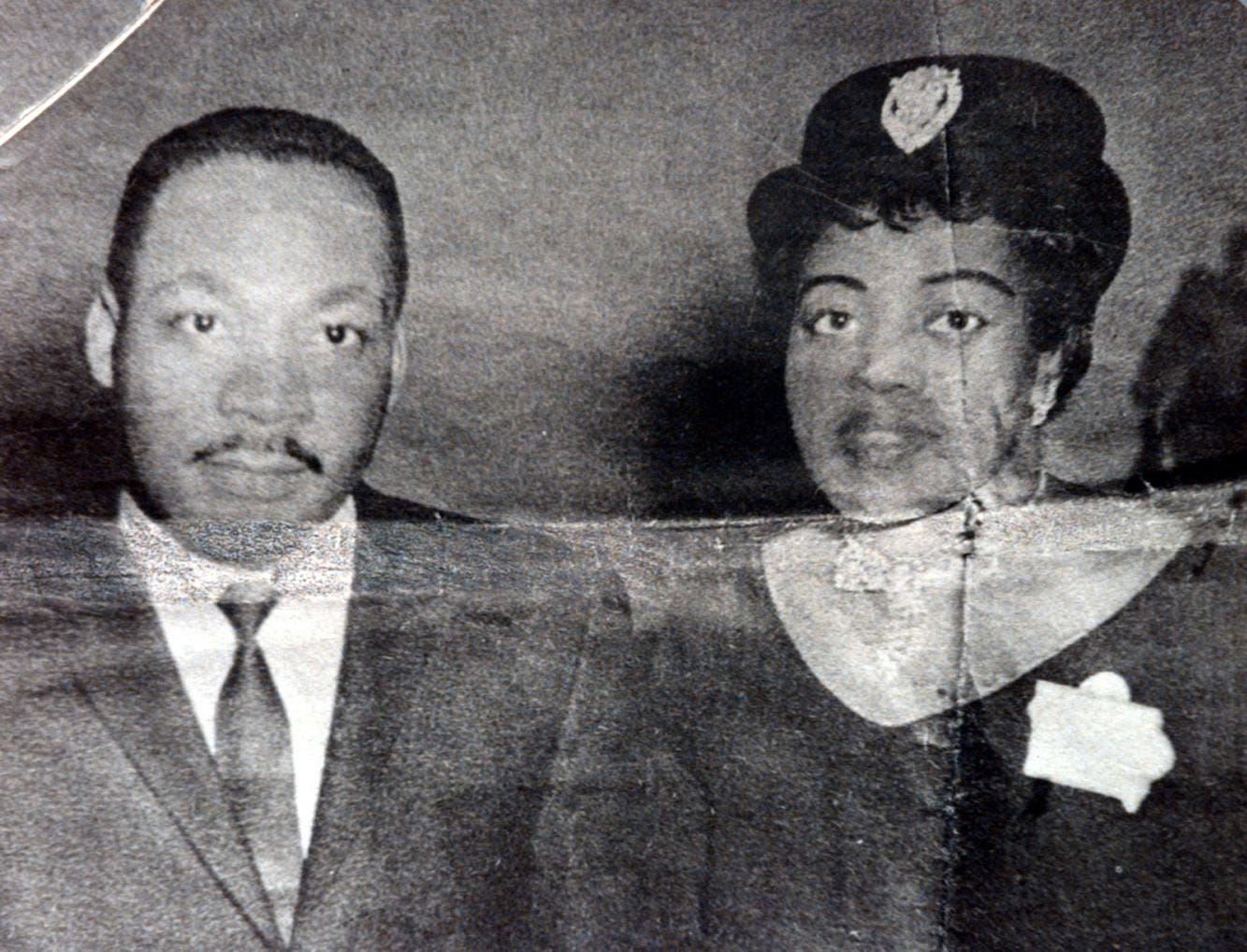
After four Birmingham, Ala., school children were killed in the bombing of the 16th Street Baptist Church on Sept. 15, 1963 by members of the Ku Klux Klan, Weems brought the parents of one of the slain girls, Carol Denise McNair, to Waterloo for a public memorial service at Grant Elementary School on Oct. 26, 1963.
Whether on the production floor at Rath in the 1950s, being arrested at a racially segregated lunch counter in Oklahoma City in the early 1960s, or calling attention to racial disparities in Waterloo, Weems was all about what Rep. Lewis called causing “good trouble”
As the decades passed, her activism was seen in a different light by many in Waterloo and she went from being reviled by some to being revered.
In the 1970s and 1980s, Weems brought the Rev. C.T. Vivian – a King associate and Southern Christian Leadership Conference organizer featured in the 1987 award-winning PBS documentary “Eyes On the Prize” – to Waterloo to conduct communitywide Urban Potential race relations training through the Waterloo Chamber of Commerce. Many white community leaders said it was an enlightening experience.
Weems also took several community leaders to The King Center in Atlanta, where they met with Coretta Scott King, Dr. King’s widow.
In 2019 Weems was recognized for a lifetime of work by the Waterloo Human Rights Commission.
Both Weems and Wright also were Waterloo-Cedar Falls Courier “Eight over 80” honorees, an award recognizing outstanding lifetime achievement by area senior citizens. Wright was recognized in 2013 and Weems in 2015.
Both Wright and Weems provided several oral history interviews to the Grout Museum District as part of its “Voices of Iowa” oral history project and its “Black Stories Collective” permanent exhibit, a joint project with the Black Hawk County NAACP and the Experience Waterloo tourism organization.
An excerpt from one of Wright’s interviews with the Grout may be viewed here. An excerpt from an interview with Weems may be viewed here
The “Good Trouble” event was part of the John Lewis National Day of Commemoration and Action, hosted by the Black Hawk County NAACP, Black Hawk County Democrats and sponsored by Indivisible Iowa Black Hawk County. It was organized by Black Hawk County Democrats chair Vikki Brown.
Prior to his 33 years in the U.S. House of Representatives, Lewis was a leader of the Student Nonviolent Coordinating Committee or SNCC and co-organizer of the August 1963 March on Washington for Jobs and freedom, at which King gave his “I Have A Dream” speech. He also participated in the “Bloody Sunday” march at Selma, Ala. March 7, 1965, during which he and other marches were beaten on the Edmund Pettus Bridge. His skull was fractured.
Lewis was arrested 40 times in actions of civil disobedience in the 1960s and as recently as 2013 during an immigration rights rally. In 2011 President Obama awarded him the Presidential Medal of Freedom.
Pat Kinney is a freelance writer and former longtime news staffer with the Waterloo-Cedar Falls Courier and, prior to that, several years at the Ames Tribune. He is currently an oral historian with the Grout Museum District in Waterloo. His “View from the Cedar Valley” column is part of “Iowa Writers Collaborative,” a collection of news and opinion writers from around the state who previously and currently work with a host of Iowa newspapers, news organizations and other publications. They are listed here. Clink on their individual links to check them out, subscribe for free - and, if you believe in the value of quality journalism, support this column and/or any of theirs with a paid subscription. Thank you.




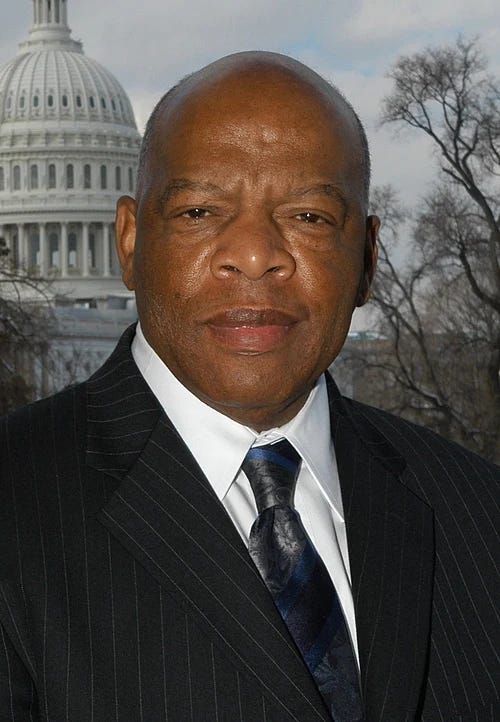
Thank you for this. I can just hear Charlene Montgomery’s voice talking about them at West Junior long ago.
I was honored to have known Anna Mae Weems. She changed my life.